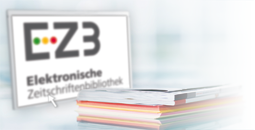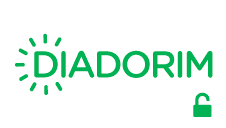Educação digital para IA
um currículo real, possível e necessário
DOI:
https://doi.org/10.47677/gluks.v25i02.533Keywords:
educação digital, multiletramentos, letramentos digitais, inteligência artificial, modalidades didáticasAbstract
This article addresses the growing need to prepare students and educators to interact critically with current digital systems and Artificial Intelligence (AI). It discusses essential AI concepts, differentiating Predictive AI, based on machine learning for predictions and classifications, from Generative AI, focused on generating new content. The text reports practical experimentation activities with students and teachers of basic education, using visual tools for training and programming machines based on data generated by users. These experiences demonstrated how it is possible to demystify the functioning of AI, promoting the understanding of its basic principles, the critical evaluation of tools, the detection of biases and the understanding of its capabilities and limitations. The article argues that the opacity of algorithms raises significant ethical and social issues. Based on discussions about didactic and organizational modalities for teaching reading and writing, it proposes the integration of AI into the school curriculum through approaches that foster technological appropriation, encouraging users to transform the meaning and use of technology by approaching digital resources throughout basic education. It is concluded that investing in education that demystifies AI and encourages technological appropriation is fundamental for a transparent, ethical and human-centered digital future, empowering individuals for more critical, authorial and meaningful interactions.
Downloads
References
BRUNS, A. Blogs, Wikipedia, Second Life, and beyond: from production to produsage. New York: Peter Lang Publishing, 2008.
BUZATO, M. E. K. Cultura digital e apropriação ascendente: apontamentos para uma educação 2.0. Educação em Revista, Belo Horizonte, v. 26, n. 3, p. 283-303, dez. 2010. Disponível em: https://www.scielo.br/j/edur/a/Dc84sCHc3YhrBVhCXWNCXzt/. Acesso em: 3 maio 2025.
COPE, W.; KALANTZIS, M. Artificial Intelligence in the Long View: From Mechanical Intelligence to Cyber-social Systems. Discover Artificial Intelligence, New York, v. 2, n. 13, p. 1-18, 2022. Disponível em: https://link.springer.com/article/10.1007/s44163-022-00029-1. Acesso em: 14 abril 2025.
HOLMES, W; MIAO, F. Guia para a IA generativa na educação e na pesquisa. UNESCO Publishing, 2024.
KNOBEL, M.; LANKSHEAR, C. (Ed.). A new literacies sampler. New York: Peter Lang, 2007. 254 p. ISBN 978-0-8204-9523-1.
LERNER, D.. Ler e escrever na escola: o real, o possível e o necessário. Artmed Editora, 2018.
LUCKIN, R.. Is education ready for artificial intelligence? [Palestra em vídeo, 33’24’’]. Cambridge Summit of Education, Cambridge, 2019. Disponível em: https://www.cambridgeassessment.org.uk/insights/is-education-ready-ai-rose-luckin/. Acesso em: 14 abril 2025.
O'NEIL, C.. Algoritmos de destruição em massa: como o Big Data aumenta a desigualdade e ameaça a democracia. Rio de Janeiro: Rua do Sabão, 2021. ISBN 9786586460025.
ROJO, R; BARBOSA. J.P. Hipermodernidade, Multiletramentos e gêneros discursivos. São Paulo: Parábola, 2015.
UNESCO. AI competency framework for teachers / Fengchun Miao, Mutlu Cukurova. Paris: UNESCO, 2024. 52 p. ISBN 978-92-3-100707-1. DOI: https://doi.org/10.54675/ZJTE2084.
Downloads
Published
How to Cite
Issue
Section
License
Copyright (c) 2025 Gláuks - Revista de Letras e Artes

This work is licensed under a Creative Commons Attribution 4.0 International License.














